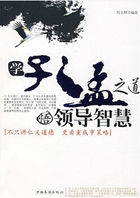Associated with the Examiner was a vigorous writer having considerable power of the old-fashioned, furious sort, ever ready to foam at the mouth. If he had had more restraint and less credulity, Edward A. Pollard might have become a master of the art of vituperation. Lacking these qualities, he never rose far above mediocrity. But his fury was so determined and his prejudice so invincible that his writings have something of the power of conviction which fanaticism wields. In midsummer, 1862, Pollard published a book entitled The First Year of the War, which was commended by his allies in Charleston as showing no "tendency toward unfairness of statement" and as expressing views "mainly in accordance with popular opinion."
This book, while affecting to be an historical review, was skillfully designed to discredit the Confederate Administration.
Almost every disaster, every fault of its management was traceable more or less directly to Davis. Kentucky had been occupied by the Federal army because of the "dull expectation" in which the Confederate Government had stood aside waiting for things somehow to right themselves. The Southern Congress had been criminally slow in coming to conscription, contenting itself with an army of 400,000 men that existed "on paper." "The most distressing abuses were visible in the ill-regulated hygiene of our camps." According to this book, the Confederate Administration was solely to blame for the loss of Roanoke Island. In calling that disaster "deeply humiliating," as he did in a message to Congress, Davis was trying to shield his favorite Benjamin at the cost of gallant soldiers who had been sacrificed through his incapacity. Davis's promotion of Benjamin to the State Department was an act of "ungracious and reckless defiance of popular sentiment." The President was "not the man to consult the sentiment and wisdom of the people; he desired to signalize the infallibility of his own intellect in every measure of the revolution and to identify, from motives of vanity, his own personal genius with every event and detail of the remarkable period of history in which he had been called upon to act. This imperious conceit seemed to swallow up every other idea in his mind." The generals "fretted under this pragmatism" of one whose "vanity" directed the war "from his cushioned seat in Richmond" by means of the one formula, "the defensive policy."
One of Pollard's chief accusations against the Confederate Government was its failure to enforce the conscription law. His paper, the Examiner, as well as the Mercury, supported Davis in the policy of conscription, but both did their best, first, to rob him of the credit for it and, secondly, to make his conduct of the policy appear inefficient. Pollard claimed for the Examiner the credit of having originated the policy of conscription; the Mercury claimed it for Rhett.
In other words, an aggressive war party led by the Examiner and the Mercury had been formed in those early days when the Confederate Government appeared to be standing wholly on the defensive, and when it had failed to confide to the people the extenuating circumstance that lack of arms compelled it to stand still whether it would or no. And yet, after this Government had changed its policy and had taken up in the summer of 1862 an offensive policy, this party--or faction, or what you will--continued its career of opposition. That the secretive habit of the Confederate Government helped cement the opposition cannot be doubted. It is also likely that this opposition gave a vent to certain jealous spirits who had missed the first place in leadership.
Furthermore, the issue of state sovereignty had been raised. In Georgia a movement had begun which was distinctly different from the Virginia-Carolina movement of opposition, a movement for which Rhett and Pollard had scarcely more than disdainful tolerance, and not always that. This parallel opposition found vent, as did the other, in a political pamphlet. On the subject of conscription Davis and the Governor of Georgia--that same Joseph E. Brown who had seized Fort Pulaski in the previous year--exchanged a rancorous correspondence. Their letters were published in a pamphlet of which Pollard said scornfully that it was hawked about in every city of the South. Brown, taking alarm at the power given the Confederate Government by the Conscription Act, eventually defined his position, and that of a large following, in the extreme words: "No act of the Government of the United States prior to the secession of Georgia struck a blow at constitutional liberty so fell as has been stricken by the conscript acts."
There were other elements of discontent which were taking form as early as the autumn of 1862 but which were not yet clearly defined. But the two obvious sources of internal criticism just described were enough to disquiet the most resolute administration. When the triple offensive broke down, when the ebb-tide began, there was already everything that was needed to precipitate a political crisis. And now the question arises whether the Confederate Administration had itself to blame. Had Davis proved inadequate in his great undertaking?
The one undeniable mistake of the Government previous to the autumn of 1862 was its excessive secrecy. As to the other mistakes attributed to it at the time, there is good reason to call them misfortunes. Today we can see that the financial situation, the cotton situation, the relations with Europe, the problem of equipping the armies, were all to a considerable degree beyond the control of the Confederate Government. If there is anything to be added to its mistaken secrecy as a definite cause of irritation, it must be found in the general tone given to its actions by its chief directors. And here there is something to be said.















